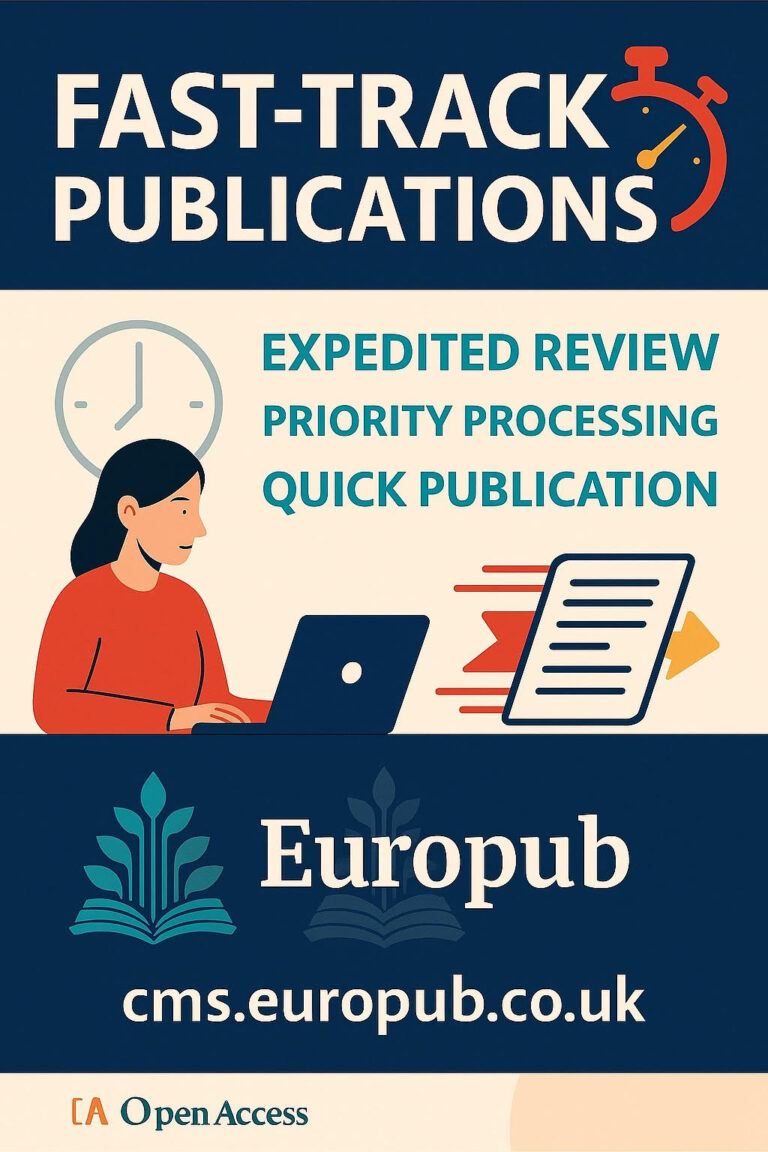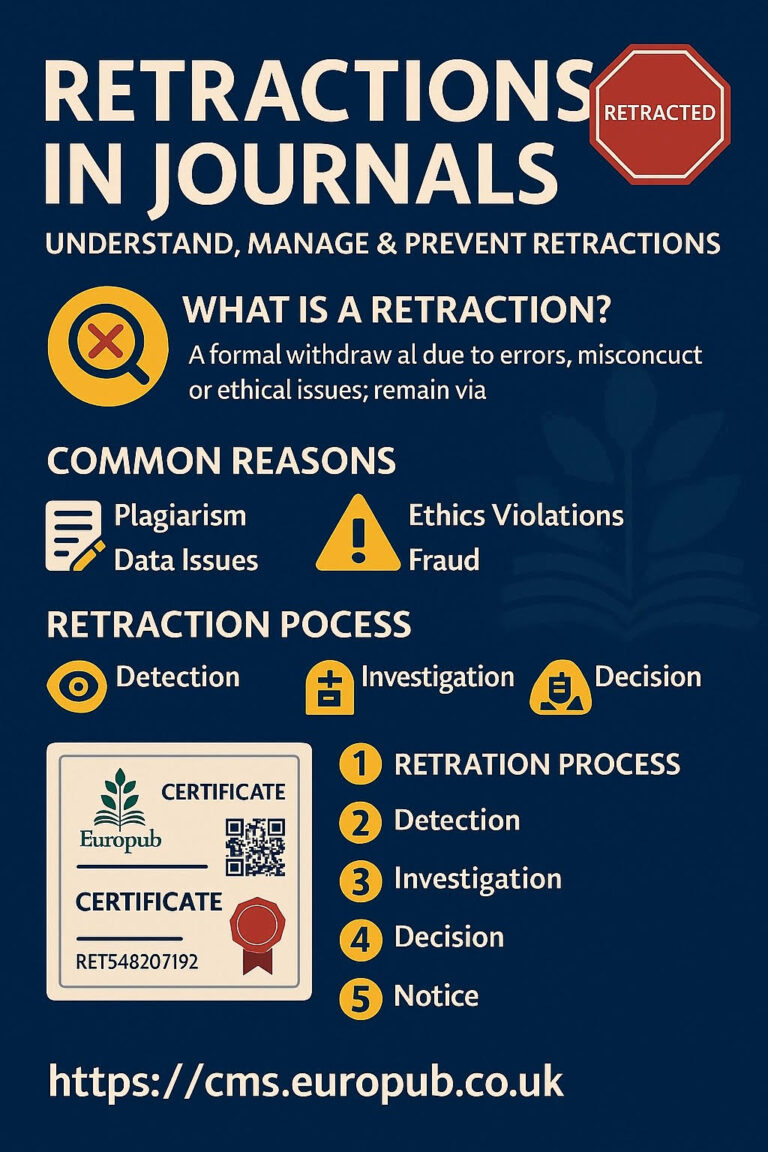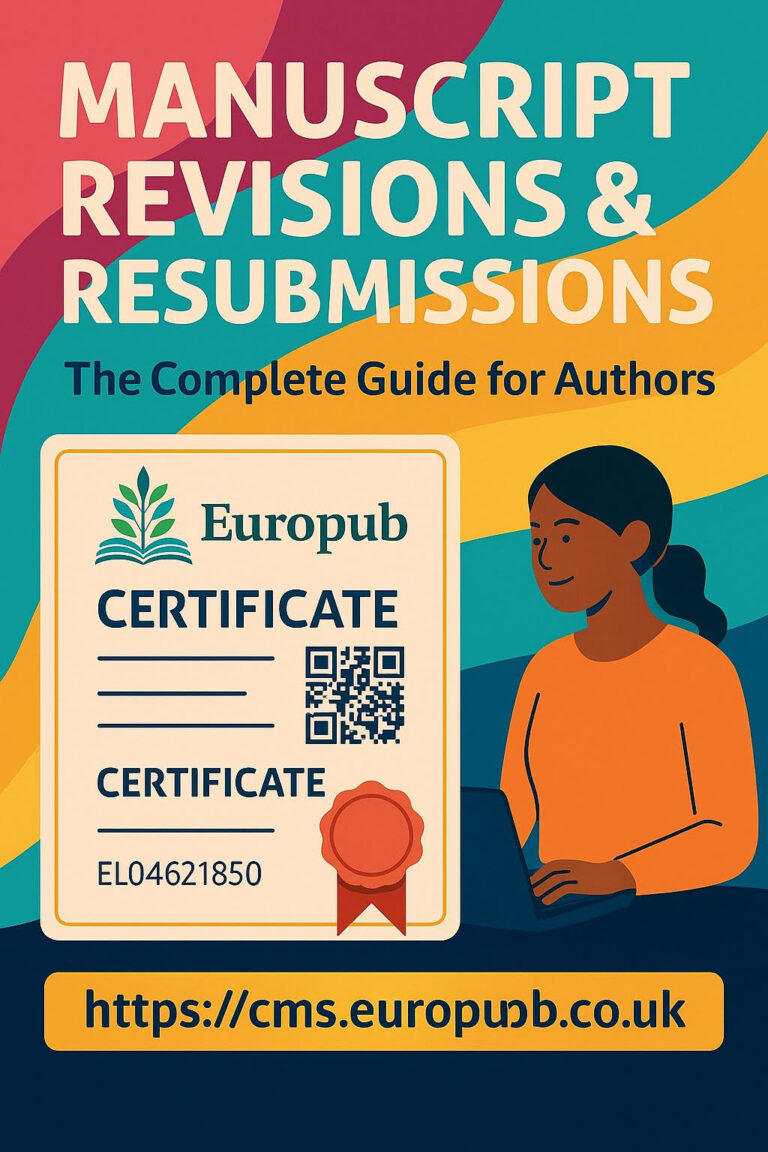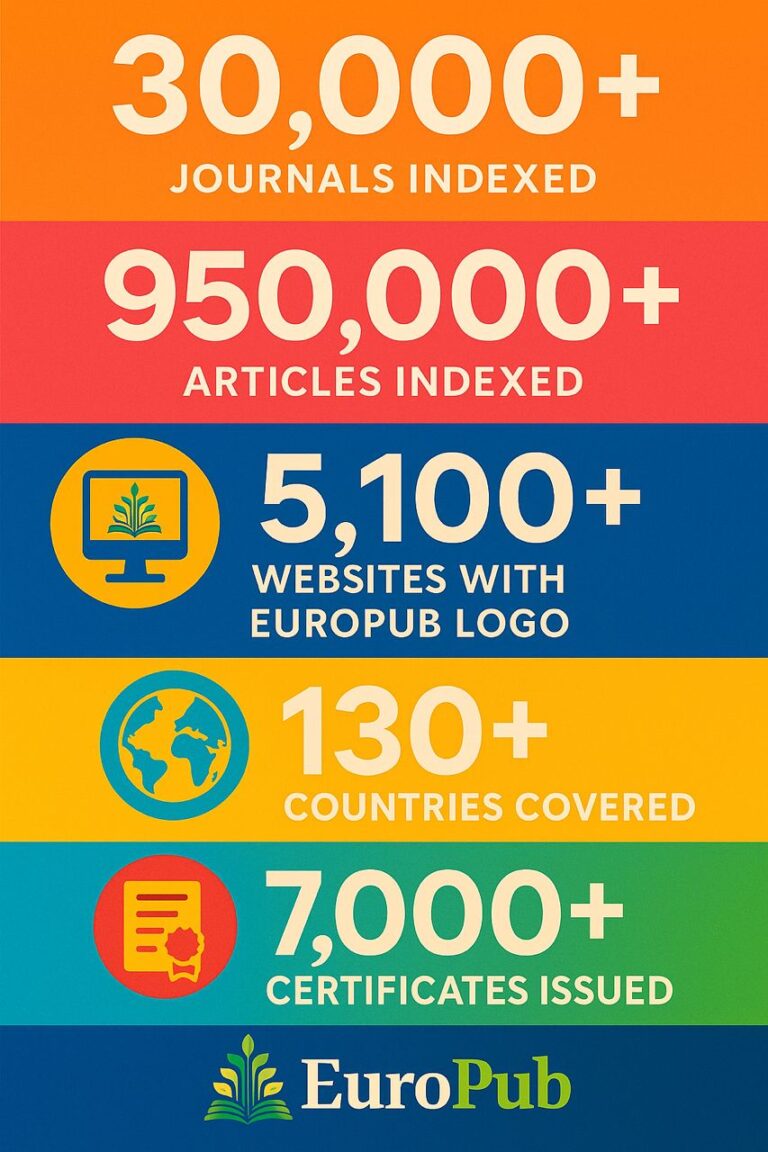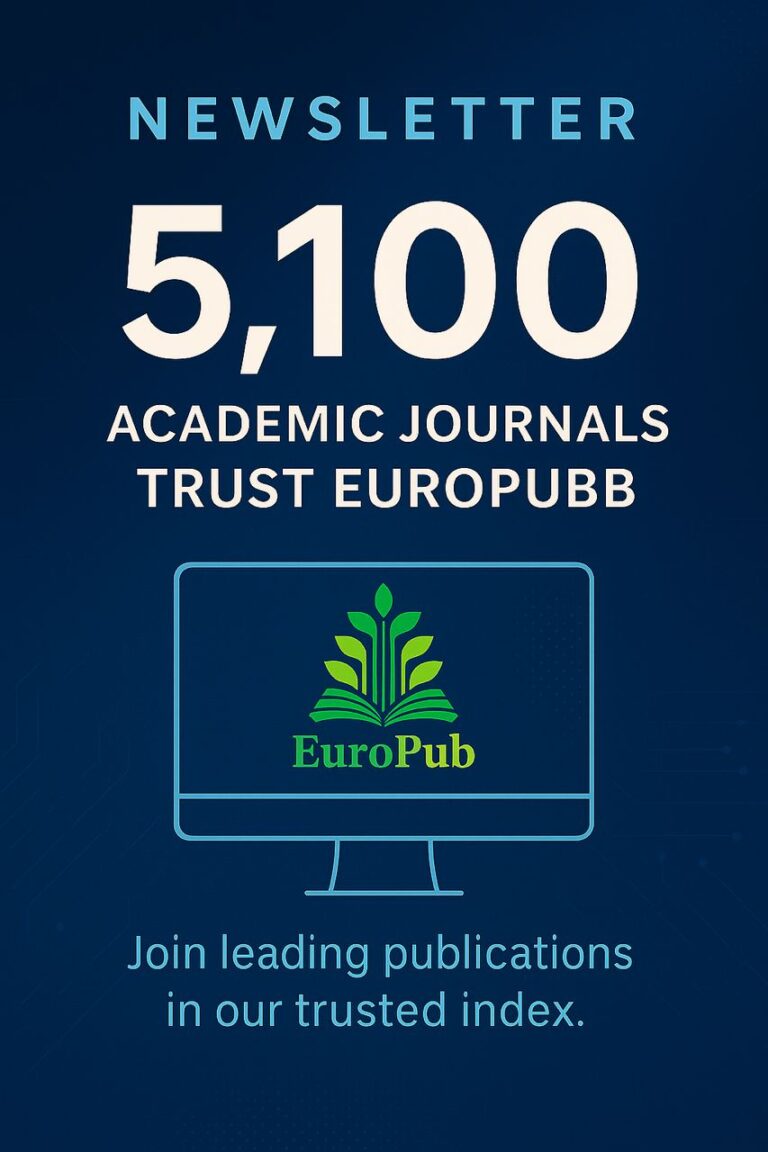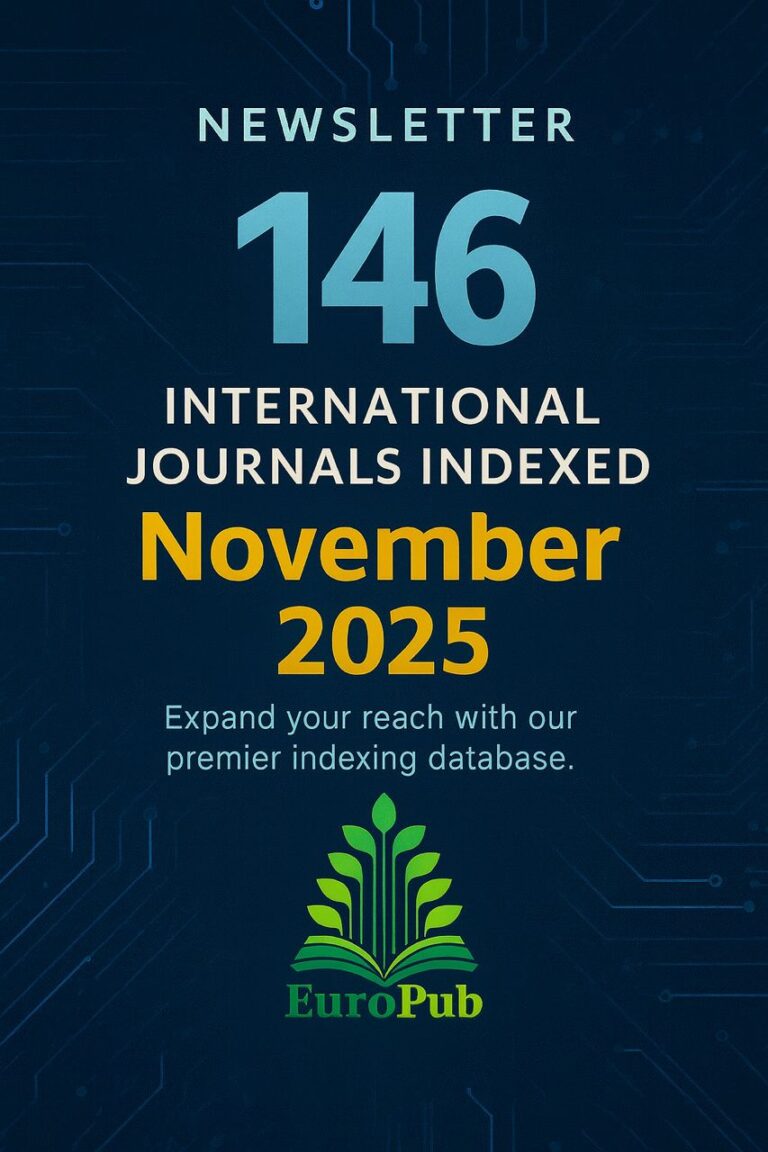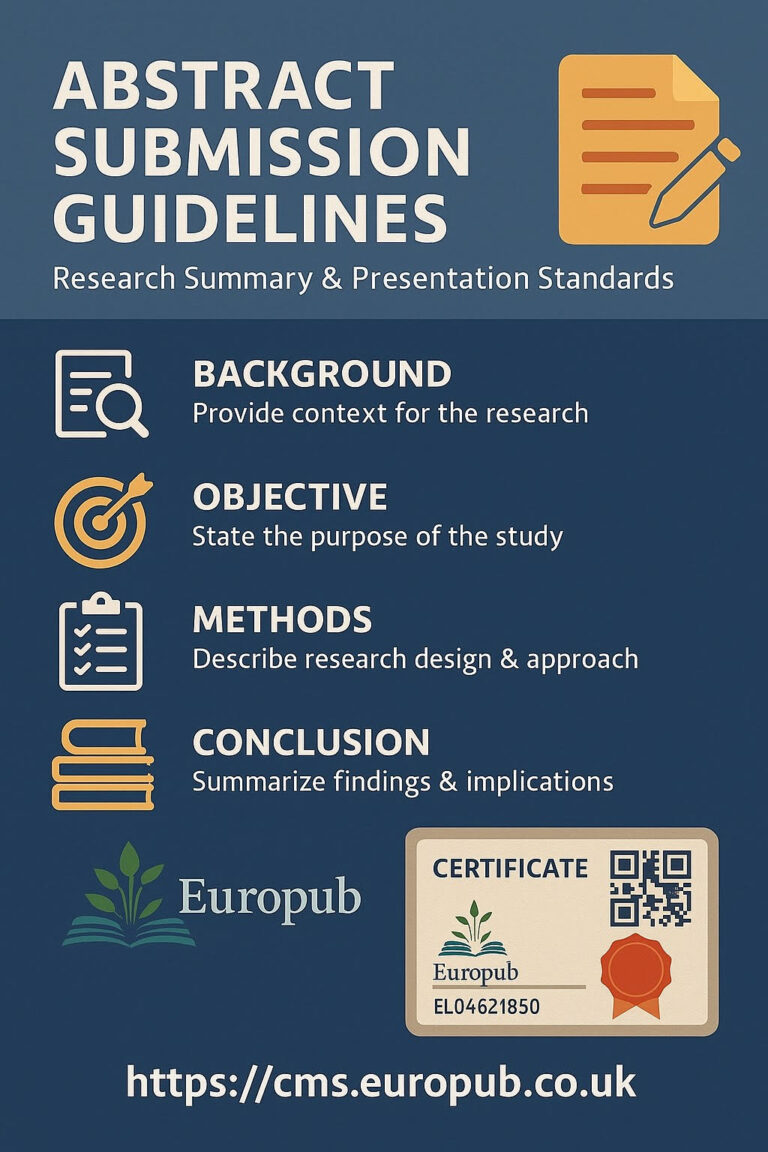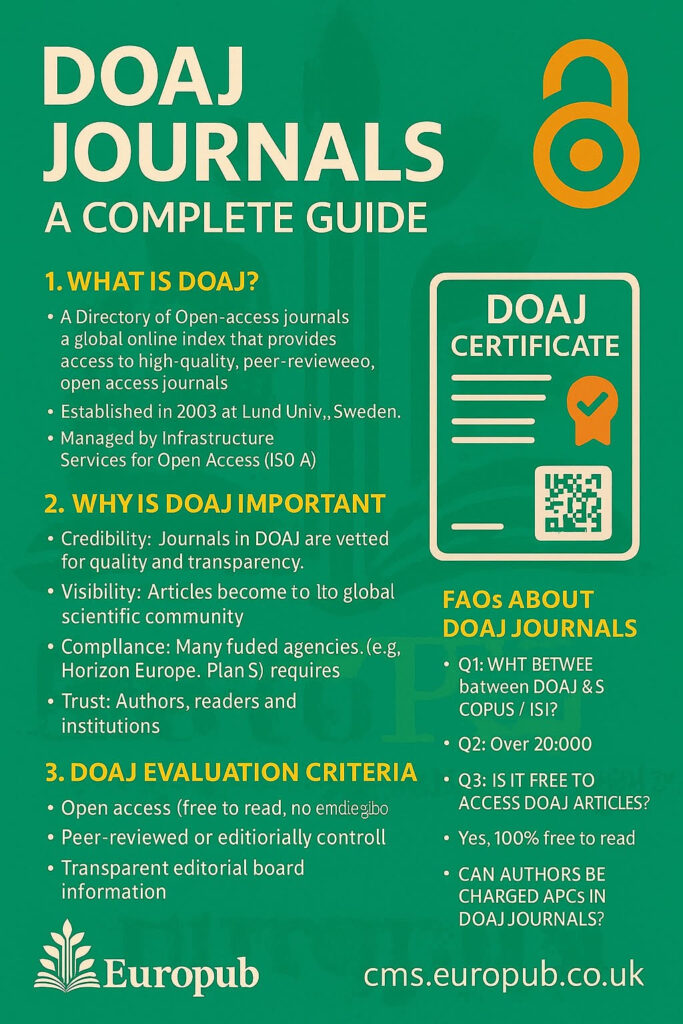
1. What is DOAJ?
The Directory of Open Access Journals (DOAJ) is a global online index that provides access to high-quality, peer-reviewed, open access journals across all scientific and academic disciplines.
- Established in 2003 at Lund University, Sweden.
- Currently hosts over 20,000 journals from 135+ countries.
- Managed by Infrastructure Services for Open Access (IS4OA).
Official link: https://doaj.org
2. Why is DOAJ Important?
- Credibility: Journals in DOAJ are vetted for editorial quality, peer review, and transparency.
- Visibility: Articles become accessible to the global scientific community.
- Compliance: Many funding agencies (e.g., Horizon Europe, Plan S) require open access journals indexed in DOAJ.
- Trust: Authors, readers, and institutions recognize DOAJ journals as safe, non-predatory outlets.
3. DOAJ Evaluation Criteria
To be indexed in DOAJ, journals must meet strict criteria:
- Open access (free to read, with no embargo period).
- Peer-reviewed or editorially controlled.
- Transparent editorial board information.
- Clear copyright & licensing policies (e.g., Creative Commons).
- Ethical publishing practices following COPE guidelines.
4. Types of Journals in DOAJ
- STEM (Science, Technology, Engineering, Mathematics)
- Medicine & Health Sciences
- Arts & Humanities
- Social Sciences
- Multidisciplinary journals
5. Advantages of Publishing in DOAJ Journals
 Increased visibility & discoverability.
Increased visibility & discoverability.
 Trusted by funders and institutions.
Trusted by funders and institutions.
 Often lower APCs compared to commercial open access journals.
Often lower APCs compared to commercial open access journals.
 Enhanced citation chances due to open access availability.
Enhanced citation chances due to open access availability.
 Compliance with international open science policies.
Compliance with international open science policies.
6. Limitations of DOAJ
- No impact factor by default (impact factors come from Clarivate).
- Some high-prestige journals may not apply for DOAJ indexing.
- Verification process can take months.
7. How to Verify a Journal in DOAJ
- Visit https://doaj.org.
- Enter the journal title, ISSN, or subject.
- Ensure the journal has the “DOAJ Seal” (extra quality certification for transparency, best practices, and licensing).
8. DOAJ Seal of Quality
The DOAJ Seal is awarded to journals that demonstrate exceptional open access publishing practices:
- Long-term digital preservation.
- Metadata supply to DOAJ.
- Article-level licensing.
- Anti-plagiarism and ethical guidelines.
9. FAQs About DOAJ Journals
Q1: What is the difference between DOAJ and Scopus/ISI?
 DOAJ indexes open access journals only, while Scopus/ISI index journals regardless of access type.
DOAJ indexes open access journals only, while Scopus/ISI index journals regardless of access type.
Q2: Is DOAJ considered prestigious?
 Yes. It is recognized by funders, institutions, and libraries as a trusted global index of open access.
Yes. It is recognized by funders, institutions, and libraries as a trusted global index of open access.
Q3: Does DOAJ give impact factors?
 No. DOAJ only indexes journals. Impact factors are provided by Clarivate Journal Citation Reports.
No. DOAJ only indexes journals. Impact factors are provided by Clarivate Journal Citation Reports.
Q4: What is the DOAJ Seal?
 A quality label given to journals that meet best practices in open access publishing.
A quality label given to journals that meet best practices in open access publishing.
Q5: How many journals are listed in DOAJ?
 Over 20,000 journals from more than 135 countries.
Over 20,000 journals from more than 135 countries.
Q6: How do I know if a journal in DOAJ is predatory?
 DOAJ has a strict vetting process, which significantly reduces the risk of predatory journals being listed.
DOAJ has a strict vetting process, which significantly reduces the risk of predatory journals being listed.
Q7: Is it free to access DOAJ articles?
 Yes, all DOAJ journals are 100% free to read.
Yes, all DOAJ journals are 100% free to read.
Q8: Can authors be charged APCs in DOAJ journals?
 Yes. Some journals may charge Article Processing Charges (APCs), but DOAJ requires clear transparency.
Yes. Some journals may charge Article Processing Charges (APCs), but DOAJ requires clear transparency.
Q9: Are DOAJ journals indexed in PubMed/Scopus too?
 Some DOAJ journals may also be indexed in Scopus, Web of Science, PubMed, but not all.
Some DOAJ journals may also be indexed in Scopus, Web of Science, PubMed, but not all.
Q10: Is DOAJ recognized for academic promotions?
 Yes, in many institutions worldwide, publishing in DOAJ journals is considered credible and acceptable.
Yes, in many institutions worldwide, publishing in DOAJ journals is considered credible and acceptable.
10. Related Resources
11. Europub Certification Services
At Europub, we support authors, editors, and journals working with DOAJ-indexed publications:
 Certification for authors, editors, and reviewers of DOAJ journals.
Certification for authors, editors, and reviewers of DOAJ journals. Online verification via https://cms.europub.co.uk.
Online verification via https://cms.europub.co.uk. Research guidance and news at https://news.europub.co.uk.
Research guidance and news at https://news.europub.co.uk. Explore Europub’s global directory at https://europub.co.uk.
Explore Europub’s global directory at https://europub.co.uk.
You can also request guidance from the Europub team on submitting to DOAJ journals, compliance, and best practices.
